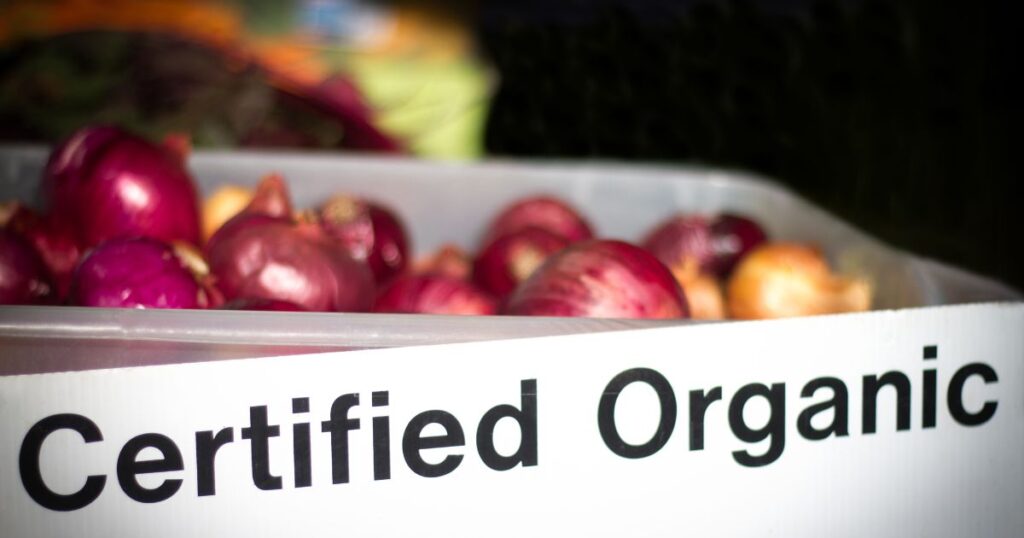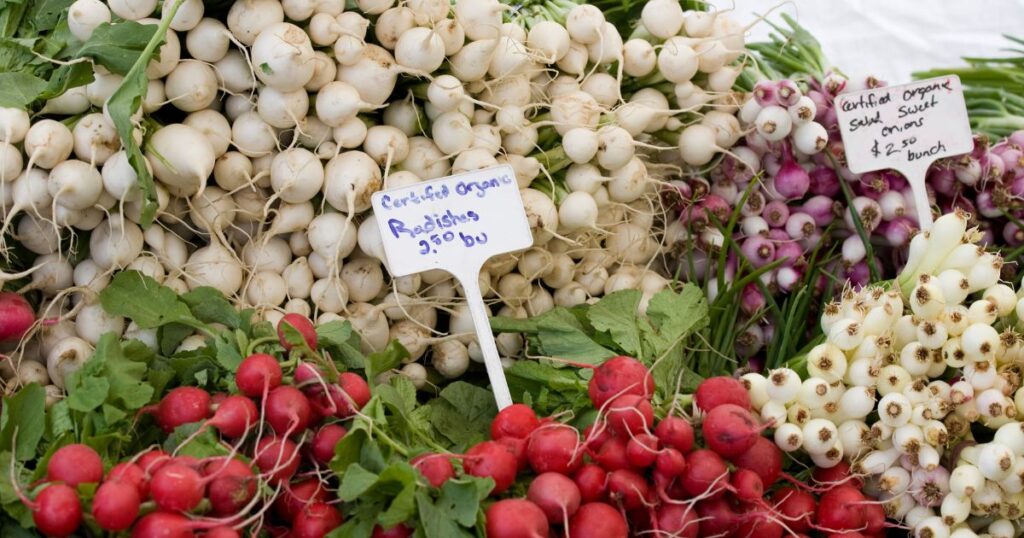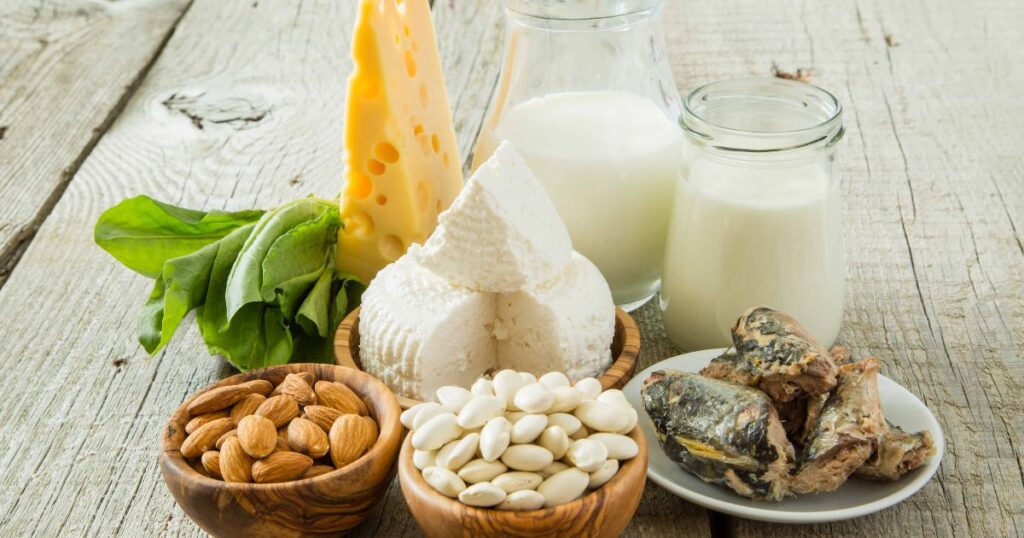USDA: The Authority That Certifies Food as Organic — Everything You Need to Know

Table of Contents
Food as organic – The United States Department of Agriculture (USDA) is key in certifying organic food in the U.S. It runs the USDA National Organic Program. This program sets rules for organic farming, processing, and labeling. It makes sure organic products are real and trustworthy.
This section will explain the USDA’s role in organic certification. It will also cover why organic certification matters. Plus, it will dive into the organic certification process.
Key Takeaways
- The USDA is the governing body that establishes and enforces organic standards in the United States.
- The USDA National Organic Program (NOP) manages the organic certification process and accredits organic certifying agents.
- Organic certification ensures that food and other agricultural products meet strict production, handling, and labeling requirements.
- Organic certification provides assurance to consumers that the products they purchase are genuinely organic.
- Obtaining USDA organic certification allows farmers and producers to use the coveted USDA Organic seal on their products.
Understanding the USDA’s Role in Organic Certification
The United States Department of Agriculture (USDA) is key in organic certification. It runs the National Organic Program (NOP). This program sets the rules for what can be called “organic” in the U.S. These rules cover many areas, like farming and how products are labeled.
What is the USDA National Organic Program?
The USDA National Organic Program is the main rule for organic products in the U.S. It makes sure organic farming and processing follow strict rules. This way, organic products can be trusted and labeled correctly.
The Importance of Organic Certification
Organic certification is important because it assures consumers about their food. It means the food is made in ways that are good for the environment and safe for people. This process helps keep the organic label honest and helps people make better choices.
To get certified, farmers and producers go through a tough process. They have to pass inspections, show their documents, and follow USDA rules. This makes sure organic products are up to standard and gives consumers confidence in their choices.
Organic Certification Bodies and Agencies

The USDA oversees a network of organic certification bodies and agencies. They inspect and certify organic farms, processors, and handlers. These accredited organic certifying agents ensure organic operations meet USDA’s strict organic standards and regulations. Products with the USDA organic seal have been checked by these certified organic labels.
The organic certification process involves the USDA, organic certification organizations, and businesses. Accredited organic certifying agents work with organic producers. They check if they follow organic rules, do on-site inspections, and decide if they get certified.
Getting organic certification is key to keeping the organic label real. It gives consumers trust in organic products. By working with a USDA-approved organic certification body, organic businesses show they care about the environment. This makes them stand out in the market.
- The USDA oversees a network of organic certification bodies and agencies that certify organic farms, processors, and handlers.
- Accredited organic certifying agents ensure that organic operations comply with USDA organic standards and regulations.
- Consumers can identify certified organic products by the USDA organic seal.
- The organic certification process involves a collaborative effort between the USDA, organic certification organizations, and the businesses seeking certification.
“Organic certification is essential for maintaining the integrity of the organic label and providing consumers with confidence in the authenticity of organic products.”
The Organic Certification Process
Getting organic certification is a detailed process that ensures organic products are genuine. It’s for farmers, processors, and distributors. Knowing the steps can make the journey to organic certification easier.
Steps to Obtain Organic Certification
- Submit an Application: Start by applying to an accredited organic certifying agent. Your application will outline your organic plan and practices.
- Develop an Organic System Plan: Create a detailed plan of your operation and how you’ll follow organic rules. Your certifying agent must approve this plan.
- Undergo an On-site Inspection: After your application and plan are reviewed, an inspector will visit your place. They check if your practices match your plan.
- Meet Organic Standards: Your operation must follow the USDA’s organic rules. This includes using approved inputs and keeping organic and non-organic areas separate.
- Obtain Certification: If you pass the application, inspection, and standards check, you’ll get certified. This lets you use the USDA organic seal on your products.
Organic Farm Inspections and Audits

Keeping your organic certification means regular checks. Farms and facilities must pass inspections and audits to keep their certification. These checks ensure you’re still following organic rules. They help keep the organic label trustworthy and build consumer confidence.
| Organic Certification Requirement | Description |
|---|---|
| Organic System Plan | A detailed description of your farming or handling practices that demonstrates compliance with organic regulations. |
| On-site Inspection | A comprehensive review of your operation by an accredited organic inspector to verify your organic system plan in practice. |
| Organic Standards Compliance | Meeting the USDA’s stringent organic production and handling requirements, including the use of only approved inputs and maintaining distinct organic and non-organic areas. |
Organic Standards and Regulations
The USDA’s organic standards and regulations set clear rules for organic production, processing, and handling. These rules cover many sustainable practices. They include using approved substances, avoiding prohibited materials, and using eco-friendly farming methods. Organic producers must follow these rules all the way through the supply chain to keep their organic certification.
Organic Production Practices and Requirements
Organic farming focuses on natural, non-synthetic inputs. It also values soil health, biodiversity, and animal welfare. Organic farmers can’t use synthetic fertilizers, pesticides, or genetically modified organisms (GMOs). Instead, they use crop rotation, cover cropping, and integrated pest management to keep soil fertile and control pests and weeds.
- Prohibit the use of synthetic fertilizers and pesticides
- Promote the use of natural, organic inputs and sustainable farming practices
- Emphasize the importance of soil health, biodiversity, and animal welfare
- Require organic producers to maintain detailed records and undergo regular inspections
The organic handling process also has specific rules. These include separating organic and non-organic products, using approved cleaning and sanitation methods, and having traceability systems. These systems help keep organic products’ integrity throughout the supply chain.
| Organic Production Practices | Conventional Production Practices |
|---|---|
| Use of natural, non-synthetic inputs | Use of synthetic fertilizers and pesticides |
| Emphasis on soil health and biodiversity | Potential for soil degradation and loss of biodiversity |
| Prohibition of genetically modified organisms (GMOs) | Potential use of GMOs |
| Detailed record-keeping and regular inspections | Less stringent record-keeping and infrequent inspections |
Organic Labeling and the USDA Organic Seal

The USDA organic seal is a well-known symbol. It shows a product has been certified organic by an approved agent. This seal means the product meets the USDA’s organic labeling requirements.
Only certified organic labels can use the USDA organic seal. This is because of strict rules.
To get the USDA organic seal, farmers and producers must go through a detailed organic certification for farmersprocess. They must follow the USDA’s National Organic Program rules. These rules cover organic production and handling.
After getting certified, organic operations can show the usda organic seal on their products. This gives consumers trust in the organic claims.
The USDA organic seal is more than a label. It shows a commitment to sustainable and ethical farming. It means the land, animals, and consumers are cared for.
By picking products with this seal, shoppers support a system that values the environment and food integrity.
| Organic Certification Requirement | Description |
|---|---|
| Prohibited Substances | Organic farms and operations are not allowed to use synthetic fertilizers, pesticides, and other non-approved substances. |
| Soil and Crop Management | Organic farms must use practices that help soil health and biodiversity. This includes crop rotation, cover cropping, and organic soil amendments. |
| Animal Welfare | Organic livestock must have outdoor access, pasture for ruminants, and organic feed. Antibiotics and hormones are not allowed. |
| Traceability and Recordkeeping | Organic operations must keep detailed records. These records show they follow organic standards and allow for product traceability. |
“The USDA organic seal is more than just a label – it represents a commitment to sustainable and ethical farming practices that prioritize the health of the land, animals, and consumers.”
The “Org That Certifies Food as Organic”
The United States Department of Agriculture (USDA) is key in certifying organic food. It runs the USDA National Organic Program. This program sets rules for organic farming, processing, and labeling.
The USDA works with organic certification bodies and agencies. These groups check and approve organic farms, processors, and handlers. They make sure products are truly organic by following USDA organic standards and regulations.
To get certified, farms and businesses go through a detailed review. They must show they follow the organic labeling requirements. Once certified, they can use the USDA organic seal. This seal tells consumers the product is organic.
The USDA plays a vital role in certifying food as organic. It protects the benefits of organic certification. It also makes sure all organic products meet the organic certification requirements.
| Organic Certification Bodies | Organic Certification Process |
|---|---|
| USDA-accredited organic certifying agentsState organic programsPrivate organic certification organizations | Application submissionOn-site inspectionRecords reviewCompliance evaluationCertification decision |
Conclusion
The USDA’s National Organic Program is key in certifying and regulating organic food. It sets strict organic standards and rules. This makes sure the organic labels you see are real.
For those looking for non-GMO and organic products, or for farmers and food producers, knowing the USDA’s role is crucial. The USDA’s strict rules help keep the organic food industry trustworthy.
When you buy organic or go through the certification process, remember the USDA’s role. They ensure organic food meets high standards of production and processing.
FAQ
What is the USDA National Organic Program?
The USDA National Organic Program (NOP) is a national framework. It oversees organic farming and labeling in the U.S. It ensures organic products meet strict criteria.
Why is organic certification important?
Organic certification assures consumers of sustainable and eco-friendly food. It means the food is free from synthetic pesticides and GMOs.
Who are the organic certification bodies and agencies?
The USDA oversees organic certification bodies. These agencies inspect and certify organic farms and handlers. They ensure compliance with USDA standards.
What is the organic certification process?
The process includes applying, creating an organic plan, and an on-site inspection. Farms and handlers must meet USDA standards. Regular inspections follow to ensure compliance.
What are the USDA’s organic standards and regulations?
The USDA’s standards cover organic production and handling. They include approved substances, prohibited materials, and sustainable farming.
What is the USDA organic seal?
The USDA organic seal shows a product is certified organic. It means the product meets USDA standards.
How can I get organic certification for my farm or business?
Work with an accredited certifying agent to get certified. You’ll need to apply, create a plan, and pass an inspection.
Can I use the USDA organic seal on my non-GMO products?
No, the USDA organic seal is for certified organic products only. Non-GMO and organic are different certifications with unique requirements.







